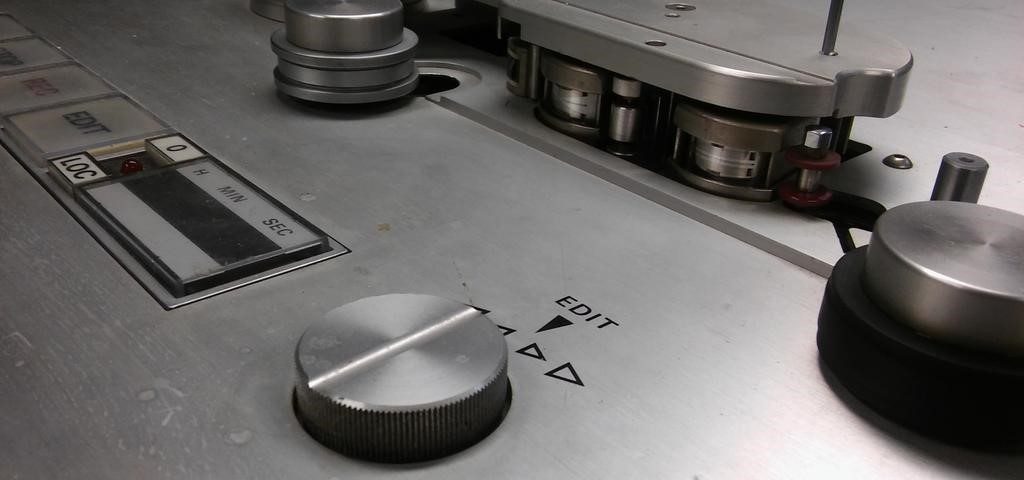World Day for Audiovisual Heritage, which is sponsored by UNESCO and takes place every year on 27 October, is an occasion to celebrate how audio, video and film contribute to the ‘memory of the world.’
The theme for 2016 – ‘It’s your story, don’t lose it!’ – conveys the urgency of audio visual preservation and the important role sound, film and video heritage performs in the construction of cultural identities and heritage.
Greatbear make an important contribution to the preservation of audiovisual heritage.
On one level we offer practical support to institutions and individuals by transferring recordings from old formats to new.
The wider context of Greatbear’s work, however, is preservation: in our Bristol-based studio we maintain old technologies and keep ‘obsolete’ knowledge and skills alive. Our commitment to preservation happens every time we transfer a recording from one format to another.
We work hard to make sure the ‘memory’ of old techniques remain active, and are always happy to share what we learn with the wider audiovisual archiving community.
Skills and Technology
Ray Edmondson points out in Audio Visual Archiving: Philosophy and Principles (2016) that preserving technology and skills is integral to audiovisual archiving:
‘The story of the audiovisual media is told partly through its technology, and it is incumbent on archives to preserve enough of it – or to preserve sufficient documentation about it – to ensure that the story can be told to new generations. Allied to this is the practical need, which will vary from archive to archive, to maintain old technology and the associated skills in a workable state. The experience of (for example) listening to an acoustic phonograph or gramophone, or watching the projection of a film print instead of a digital surrogate, is a valid aspect of public access.’
Edmondson articulates the shifting perceptions within the field of audiovisual archiving, especially in relation to the question of ‘artefact value.’
‘Carriers once thought of and managed as replaceable and disposable consumables’, he writes, ‘are now perceived as artefacts requiring very different understanding and handling.’
Viewing or listening to media in their original form, he suggests, will come to be seen as a ‘specialist archival experience,’ impossible to access without working machines.
Through the maintenance of obsolete equipment the Greatbear studio offers a bridge to such diverse audio visual heritage experiences.
These intangible cultural heritages, released through the playback of media theorist Wolfgang Ernst has called ‘Sonic Time Machines’, are part of our every day working lives.
We rarely ponder their gravity because we remain focused on day to day work: transferring, repairing, collecting and preserving the rich patina of audio visual heritage sent in by our customers.
Happy World Day for Audiovisual Heritage 2016!

